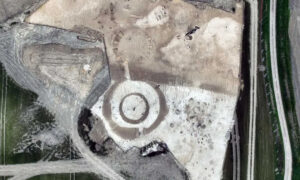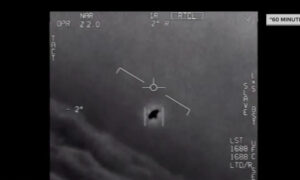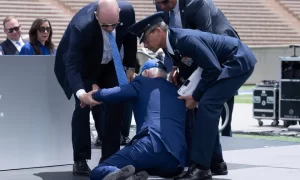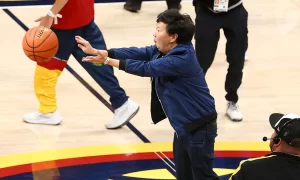“A big part of my folks changed garments and wore Ukrainian outfits since they were of greater and more agreeable. … Our incredible nation couldn’t dress, prepare, and feed its own military.”
Those are among the initial lines of a nerve racking 77-page account from Russian soldier Pavel Filatyev, portraying his part in the 2022 attack of Ukraine — and presently accessible to peruse in English because of five Russian-speaking Pilots who deciphered the message for the benefit of the Flying corps Culture and Language Center (AFCLC).
The full blog — named “Zov,” a term that signifies “Calling” in English — stood out as truly newsworthy in August in the wake of showing up on the Russian web-based entertainment site Vkontakte. However Russian fighters had recently posted photographs and recordings of the conflict to online entertainment, Filatyev’s blog was one of the first longform records to show up openly.
“I can’t stay quiet,” composed Filatyev, who later escaped Russia for political refuge in France.
Pilots and the remainder of America can now peruse the entire record on the U.S. Aviation based armed forces’ Air College site. And keeping in mind that it could be difficult to confirm the subtleties in Filatyev’s all’s record, his composing offers an uncommon look at what turned out badly in the Russian intrusion.
Explicitly for U.S. administration individuals and pioneers, “Zov” gives understanding into how Ukrainian powers have had the option to resist the chances and obtuse the impacts of a bigger, innovatively prevalent Russian military, one of the USAF interpreters told Air and Space Powers Magazine.
“Before the attack began, everyone was detailing that Ukraine would fall in practically no time, and that plainly hasn’t occurred,” Capt. Roman Obolonskiy said. “Presently we need to return and sort out what inside our tactical knowledge local area and examination neglected to anticipate this result.”
While military organizers could gauge the quantity of Russian assets like tanks, troops, and planes, accounts like “Zov” shed light on immaterial factors like assurance, inspiration, and preparing.
“Is what’s on paper genuine? The essayist would tell us, ‘Hello we were not given the things we figured we would be given,'” Obolonskiy said. “‘We didn’t have camping beds or winter dress and we had corroded weapons that were carefullyconcealed.’ Having 200 rifles is perfect, yet not in the event that none of your 200 rifles can fire straight.”
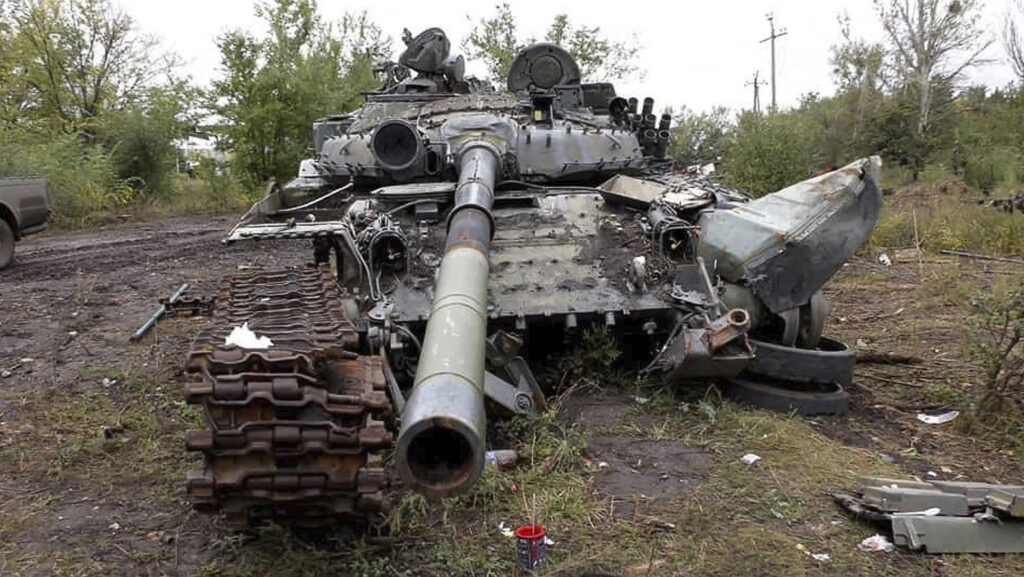
Difficulties of Interpretation
Like his four co-interpreters, Obolonskiy is an individual from the Language-Empowered Pilot Program, a drive inside AFCLC where Aviators and Space Power Gatekeepers who have critical involvement with an unknown dialect can apply to act as social and phonetic specialists for their kindred help individuals.
The group of Aviators, which included Maj. Herman Reinhold, Capt. Mikhail Berlin, Capt. Abror Samatov,, and Expert Sgt. Nadia Wolfe, read “Zov” the whole way through, split it into segments, allocated one Pilot to each part, then, at that point, cooperated to guarantee consistency all through the interpretation. It was a troublesome errand: Filatyev wrote in a continuous flow style loaded up with military language, grammatical errors, and everyday articulations that don’t make an interpretation of impeccably into English.
“It was the utilization of language I saw as especially fascinating,” Reinhold said. “It is somewhat of a riddle: how would I decipher the F-word in Russian into English in a way that is reasonable to the peruser. I could possibly utilize the specific F-word same. Perhaps I’ll utilize different revile words to convey the importance.”
To be sure, David Remnick, the manager of The New Yorker and a familiar Russian speaker, wrote in 2014 there are great many minor departure from the four revile words that make up the foundation of Russian irreverence. Other than foulness, the Jump researchers additionally needed to utilize their best judgment to decipher everyday or military terms.
“A portion of the tactical language, shoptalk, wit, and casual articulations wouldn’t seem OK in English whenever deciphered word for word,” said Berlin. “It was a tomfoolery challenge to track down an imaginative method for conveying precisely the same importance and track down comparable expressions that sounds utilized in English.”
Examples for the US
At the point when the interpretation was finished, it gave firsthand viewpoint of what numerous experts had seen from a good ways: The Russian conflict exertion has been hampered by unfortunate planned operations, correspondence, and initiative. “Zov” outlines how those issues influence forefront troops.
“Who will be responsible for these lives lost and the injured?” Filatyev expounded on an associated occurrence with cordial fire. “All things considered, the justification for their demises was not the amazing skill of the Ukrainian armed force, but rather the wreck in our own.”
The deficiency of clinical supplies and other hardware that Filatyev experienced reminded Wolfe, a clinical coordinated factors flight boss, exactly the way in which significant her work is to the bigger U.S. military.
“In clinical strategies, we take care of our business everyday and we don’t be guaranteed to see the result,” she said. “‘Zov’ brings the significance of how we light and is a model that I can use to rouse my kin.”
Filatyev’s diary likewise showed the effect a corps of noncommissioned officials, or scarcity in that department, can have on a war zone.
“There is an exceptionally enormous partition among officials and joined up,” said Wolfe. “It was practically similar to they are not in any event, chipping away at a similar side.”
Obolonskiy left away with a more noteworthy appreciation for defilement in the Russian military and political framework, which might have added to the brokenness at the front.
“We’ve generally had some significant awareness of debasement inside Russia, yet I don’t think we appreciated what that implied,” he said. “All through understanding this, beginning to end, each connection in their chains of supply, apportionments, and coordinated factors was influenced by a degree of debasement where individuals were simply taking all that they required for the conflict exertion.”

Really Getting it
Regardless of Filatyev’s reactions of the conflict and the Russian military, the infantry soldier proclaims: “I’m not a defeatist! I’m a loyalist! … I feel frustrated about the Ukrainians, a friendly country to me! Yet, significantly more, I feel frustrated about the pre-owned Russian individuals and the countries of the incomparable USSR, whose individuals were taken advantage of by others, more deceitful people. Who are as of now annihilating the biggest and the best country on the planet!”
Filatyev might have seen atrocities firsthand. In Spring, Radio Free Europe/Radio Freedom asserted the soldier said he knew a few Ukrainians caught by his unit would later be executed. In ‘Zov,’ he composed that he saw no demonstrations of torment or assault, however he saw somewhere around one damaged dead body. The soldier communicated culpability for partaking in what he felt was an uncalled-for attack.
Recorded as a hard copy “Zov,” he might have “attempted to accomplish something that would clear his still, small voice,” Wolfe said.
In perusing the record, Americans should recollect Filatyev’s experience may not mirror that of the whole Russian military, Reinhold said. “Zov” is an essential source report, and different sources are required for a more all encompassing image of the contention. In light of those restrictions, Filatyev’s record could act as a wake up call that a military’s solidarity on paper may not hold up on the front line.
“There is a chance to attempt to sort out how we can re-examine different enemies,” said Obolonskiy. “Could it be said that we are zeroing in on the right things when we attempt to compute how fit an unfamiliar military is?”
That outlook applies not exclusively to foes, yet additionally to partners, accomplices, and the U.S. itself.
“We want to thoroughly search in the mirror also and see what of this concerns us,” Obolonskiy said. “Do we give the right preparation, or would we say we are overwhelmed too? Do we give the legitimate hardware or do we likewise have five firearms at a base of 1,000?”




